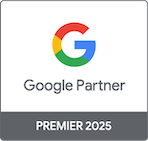
Top paid search campaign management software: Tools to boost PPC performance in 2025
Abisola Tanzako | Jul 10, 2025

Table of Contents
- What is paid search campaign management software?
- Benefits of paid search management software for PPC campaigns
- Core features to look for in paid search campaign software
- Top-paid search campaign management software
- Comparison of the best-paid search software for 2025
- How to choose the right PPC campaign software
- Advantages of paid search campaign software
- Disadvantages of paid search campaign management
- Best practices for using PPC campaign management tools
- Empowering your PPC strategy with the right tool
- FAQs
Businesses that use automated PPC management tools reduce their wasted ad spend by 18% on average. Running a paid search campaign is no longer as simple as selecting keywords, crafting ads, and monitoring conversions.
Managing pay-per-click (PPC) campaigns effectively requires a strategic approach, precision, and the right tools. That is where paid search campaign management software comes into play.
This article compares the top campaign management tools, their key features, pricing, and which businesses they are best for.
What is paid search campaign management software?
Paid search campaign management software refers to digital tools that help marketers and businesses create, monitor, optimize, and report on paid search (PPC) campaigns, typically across platforms such as Google Ads and Bing Ads, as well as social media platforms with search-like advertising capabilities (e.g., LinkedIn or Facebook).
Benefits of paid search management software for PPC campaigns
Running a PPC campaign without the right tools is like driving cross-country without GPS. Here is why campaign management software is a must-have:
1. Efficiency at scale: Managing large or multiple PPC campaigns can be time-consuming and prone to errors. Campaign software automates repetitive tasks and enables you to manage campaigns across multiple platforms from a single dashboard.
2. Data-driven optimization: These tools provide in-depth insights into what works and what doesn’t. With real-time analytics, A/B testing tools, and AI-driven suggestions, you can make smarter, faster decisions.
3. Better budget control: Software solutions help monitor daily and monthly spending to avoid overspending.
4. Improved ad performance: Campaign management tools are designed to optimize performance across the board, from dynamic ad creation to AI-driven bidding strategies.
5. Time savings: Automating tasks such as bid adjustments, keyword optimization, and reporting saves time, allowing you to focus on strategy and growth.
Core features to look for in paid search campaign software
Here are the core features you should prioritize:
- Keyword research tools: Software should offer keyword planning capabilities such as identifying long-tail keywords, analyzing search volume, and spotting trends.
- Bid management and automation: Smart bidding tools automatically adjust your bids based on competition, time of day, and conversion data to maximize ROI.
- Ad copy testing and rotation: The ability to A/B test headlines, descriptions, and calls-to-action (CTAs) helps improve click-through rates (CTR) and reduce cost-per-click (CPC).
- Cross-platform management: Managing Google Ads, Microsoft Ads, and social ads (such as Facebook and LinkedIn) in one place can significantly streamline workflow.
- Reporting and analytics: Customizable reporting dashboards with real-time insights, conversion tracking, and visualized data make evaluating performance and presenting results to stakeholders easier.
- Budget and spend tracking: Budget controls, alerts, and automatic reallocation features help ensure every penny is well spent.
- AI and machine learning integration: The best tools use AI to detect underperforming ads, predict outcomes, and recommend optimizations based on historical data.
Top-paid search campaign management software
There are many tools available today. Here is a look at some of the top solutions and what they bring to the table:
- Google Ads Editor: Google’s offline tool for managing and editing large campaigns. It is ideal for quick bulk edits, ad creation, and reviewing performance before pushing live.
- Semrush PPC Toolkit: Semrush isn’t just for SEO. Its PPC toolkit includes keyword research, competitor analysis, ad builder, and CPC mapping, making it a great all-in-one platform.
- WordStream Advisor: Designed for small to medium-sized businesses, WordStream offers a user-friendly platform that automates bid adjustments, creates reports, and even suggests keyword improvements.
- Optmyzr: Optmyzr is built for PPC professionals and agencies. It excels in automation, account audits, advanced scripts, and data visualization tools.
- SpyFu: SpyFu is powerful for competitor PPC research. You can view your rivals’ top-performing ads, keywords, and historical campaign performance.
- Marin Software: A robust platform for large advertisers, Marin integrates search, social, and eCommerce data for deep insights and holistic campaign management.
Comparison of the best-paid search software for 2025
They include:
1. Google Ads Editor
- Best for: Bulk campaign edits
- Strengths: Offline editing, quick bulk changes, preview before publishing
- Ideal users: Advertisers managing large Google Ads accounts
- Limitations: Lacks competitor insights and automation tools
2. Semrush PPC Toolkit
- Best for: All-in-one keyword and PPC strategy
- Strengths: Keyword research, ad creation, CPC mapping, competitor analysis
- Ideal users: Marketers needing a full PPC + SEO suite
- Limitations: Advanced features may require a learning curve
3. WordStream Advisor
- Best for: Small to medium-sized businesses
- Strengths: Easy automation, reporting, and keyword suggestions
- Ideal users: Businesses new to PPC or with limited time/resources
- Limitations: Less advanced than agency-grade platforms
4. Optmyzr
- Best for: Agencies and PPC pros
- Strengths: Advanced automation, audits, customizable scripts, data viz
- Ideal users: PPC managers handling multiple accounts
- Limitations: It may be complex for casual users
5. SpyFu
- Best for: PPC competitor intelligence
- Strengths: Spy on competitors’ ads, keywords, and performance history
- Ideal users: Marketers focused on outperforming rivals
- Limitations: It does not offer campaign management features
6. Marin Software
- Best for: Large-scale, cross-channel advertising
- Strengths: Integrates search, social, and eCommerce data for unified management
- Ideal users: Big advertisers and enterprise teams
- Limitations: Requires setup time and budget.
How to choose the right PPC campaign software
With numerous tools available, selecting the one that best suits your business or client needs is crucial. Here is a simple framework to help:
- Define your budget: Some platforms, like Google Ads Editor, are free, while enterprise solutions like Marin or Skai have higher monthly costs.
- Identify your pain points: Do you struggle with bid management? Are reporting and analytics weak spots? Choose a tool that directly addresses your challenges.
- Evaluate ease of use: A complicated tool can slow down your team. Look for platforms that offer intuitive dashboards, clear tutorials, and excellent customer support.
- Check integration capabilities: Ensure the tool integrates seamlessly with your existing marketing stacks, such as Google Analytics, CRM tools, or social media platforms.
- Test with a free trial: Most tools offer a free trial period. Use this time to assess usability, features, and whether it fits your workflow.
Advantages of paid search campaign software
Using the right tool delivers more than just convenience. It impacts your bottom line. Some major benefits include:
- Higher ROI: You reduce wasted ad spend and improve performance through automation and optimization.
- Better campaign decisions: Real-time data and predictive analytics help you make smarter strategic moves.
- Greater scalability: Tools allow you to manage hundreds of ads or accounts without increasing headcount.
Disadvantages of paid search campaign management
Even with tools, campaign management is not always smooth sailing. Common challenges include:
- Ad fatigue: Ads can go stale without regular testing, leading to lower CTRs.
- Data overload: Having too many metrics can make it difficult to pinpoint what truly matters.
- Budget pacing: Overspending or underspending is easy without proper monitoring.
Best practices for using PPC campaign management tools
To get the most out of your software, keep these best practices in mind:
- Regularly update ad copy: Even high-performing ads lose steam; test variations frequently.
- Leverage automation, but monitor it closely: Utilize smart bidding and auto-optimization features, and review performance regularly.
- Segment campaigns strategically: Break campaigns into focused ad groups by intent or product category for better targeting.
- Use conversion tracking: Ensure your tracking is set up correctly to monitor real ROI, not just traffic.
- Optimize for mobile: Ensure your ads, landing pages, and CTAs work well on mobile devices.
Empowering your PPC strategy with the right tool
Choosing and using the right paid search campaign management software can make or break your digital advertising success.
These tools not only make life easier, but they also maximize every dollar you spend, provide actionable insights, and help you stay competitive in a crowded marketplace.
Begin by identifying your goals, exploring tools that align with your needs, and gradually integrating more innovative software into your PPC workflow. With the right combination of strategy and technology, your campaigns can drive consistent, measurable growth.
FAQs
Q. 1 Is paid search campaign management software only for agencies?
No, while agencies benefit significantly from these tools, businesses of all sizes, including small eCommerce brands and startups, can use them to gain better campaign control and performance.
Q. 2 Do I still need a PPC expert if I have campaign software?
Yes. While the software helps automate and optimize many tasks, strategic planning, messaging, and creative decision-making require human oversight.
Q. 3 Can I manage Facebook and Instagram ads with these tools?
Some platforms, such as Skai and Marin, support cross-channel ad management, including social media. Others are focused strictly on search platforms, such as Google and Bing.
Q. 4 Are there any free PPC management tools?
Yes! Google Ads Editor is a free and powerful tool for managing Google campaigns offline. Some platforms also offer limited free versions or trials.





